
After exile and a new start in Germany, the Iranian-born REWE salesman Parviz Azhari has stood for a relaxed coexistence of cultures for decades. Here he tells us what he exemplifies to his team from eight nations, why origin plays no role but good familiarisation plays a major role, what his first German word was - and which recent event really upset him. Spoiler: Corona didn't do it.
one: Mr Azhari, you were nominated for the prestigious Supermarket of the Year industry award with your store in Sinzig - partly because of your "multicultural team". How is your team made up?
Parviz Azhari : Around 50 employees from eight nations work hand in hand in Sinzig, including from Russia, Belarus, Azerbaijan and Syria. There are also Yazidis from Syria, colleagues with a Turkish or Polish background and native Iranians like me.
one: How does this "mix" come about - and how is it received by customers?
Parviz Azhari: By chance, friends of employees, recommendations... It's important for me to emphasise: When applying for a job, I don't look at where people come from. I need people who can lend a hand.
But of course I make sure there is a certain balance, that our team is a good mix. Our clientele is also multicultural, yes. But 70 per cent are German. So I put myself in everyone's shoes and rely on my instincts when it comes to the composition of the team.
 Parviz Azhari mit der stellvertretenden Leiterin seines Sinziger Marktes, Günay Altunbas
Parviz Azhari mit der stellvertretenden Leiterin seines Sinziger Marktes, Günay Altunbas
one: Have you ever had any negative experiences because of your migration background?
Parviz Azhari: No, I've never actually had any problems with it. I've certainly been "picked on" from the side once or twice, but I don't think that had anything to do with my background, but with the fact that I am who I am. That's why I've never felt disadvantaged. I have so many positive experiences here, and the negative ones are everywhere, even in my country of origin. That's normal in my eyes, I can easily look past it. You have to remember that we weren't invited, we came here ourselves. But we were treated with dignity here, which we didn't necessarily have in our own country, in Iran at the time.
one: How do things work between the nationalities in your team?
Parviz Azhari: Very easy. I treat everyone equally fairly. And just as I live it and set an example, so do my employees. Only sometimes I have to scold a colleague who has been here for years if he asks too much of a newcomer with language problems.
one: Why do you intervene then?
Parviz Azhari: You have to give time and invest time. You might be lucky in the end and gain a good employee. But good employees need to be trained well. For some it's quicker, for others it takes time. We have a colleague from Belarus who came to us as a temporary employee with almost no language skills. But she quickly learnt what to do, can now communicate well, is reliable and works well. The time we invested in training her has paid off. Today she is a permanent part-time employee.

„Language is the key to success. I speak from experience. When I came here, I only knew one word: "Attention!". “


In any case, language is the key to success, I tell everyone who has language problems when I recruit them. I tell them: "You have to learn the language, otherwise you won't get anywhere". I speak from my own experience. When I came here, I only knew one German word: "Achtung!".
one: It is certainly also due to the labour shortage that you are investing more time in new employees these days. What is your tip?
Parviz Azhari: In the past, applications used to pile up on the desk. If I were to sort them out today on the basis of nationality or language skills, I wouldn't get any further, none of us would get any further. That's why we have the trial period, during which we see whether someone is capable of learning and wants to progress. You should try things out and give people opportunities. And of course, colleagues have to give the green light before the probationary period ends. I may be hiring, but the store management team ultimately gives the green light - or not. And if a new employee doesn't understand a customer straight away, they call in a colleague who can help them. There have never been any complaints from customers.

„Nowadays you meet people with a migration background everywhere, at the bank, at the office, in the supermarket...“


And it's true that you now meet people with a migrant background everywhere, whether at Cologne Central Station or here in the Ahr Valley, be it at the bank, at the office or in the supermarket. My children have a migrant background, they were born here, they should be accepted as Germans and, by and large, they are.
one: Your market is in Sinzig, you live in the neighbouring town of Bad Neuenahr, both places that were hit by the Ahr flood last summer. How did you experience that?
Parviz Azhari : When corona came, I thought you had experienced the revolution in Iran, then the war, then exile, now corona, and I was sure that would complete my CV. But unfortunately, the flood came. Our house was not affected. But when you live in a city that is very affected, it gets to you. No electricity for a week, no water for a week. It brought back memories of the war in my home country. I don't know what could come next. Although, the war in Ukraine...
one: Given your life story, were you more relaxed about coronavirus - the toilet paper crisis - and the consequences of the floods than many Germans?
Parviz Azhari: Yes, many people went crazy during corona. But I thought, that's the way it is, this is a crisis and we have to make the best of it. But the flood here in the city totally blew me away. So many traumatised people here in the town, here in the shop, dirty, crying, everything lost. I knew many of them as customers. That really got me down.
Everything was upside down, we ordered lorries full of water and other things, and the REWE warehouse in Koblenz was really helpful. And when my colleagues from my store in Mülheim-Kärlich came round after work and helped out, I had tears in my eyes. That made me proud and did us good, because we were all at the limit. I also thought it was great of REWE Group to have helped affected employees, including temporary staff, with very generous and unbureaucratic donations. The donations flowed in within three days, which was amazing.

REWE businessman Parviz Azhari left his home country of Iran after graduating from high school due to the political system of the 1980s and the escalating Iran-Iraq war. In exile in Germany, the merchant's son built a new life for himself.
Instead of studying for a degree, he trained at a REWE supermarket. in 2002, Azhari opened his first own store in Mülheim-Kärlich near Koblenz, followed by the store in Sinzig (Ahr valley) in 2005.

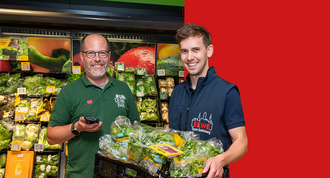
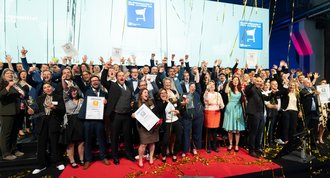
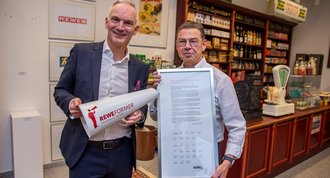
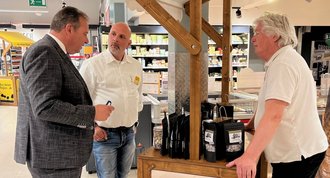
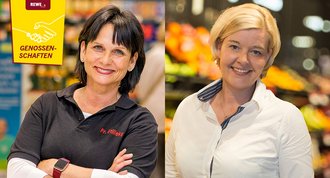
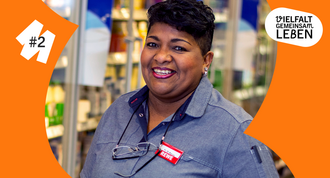
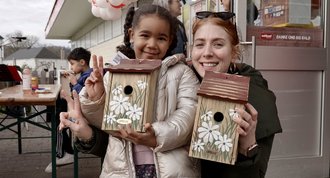

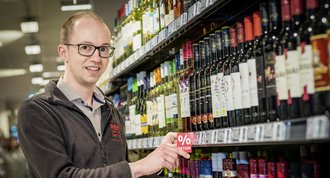
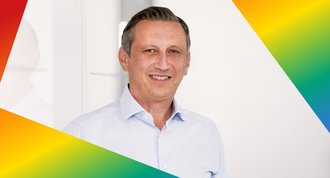

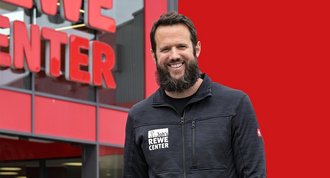
Both German and English comments appear here.
Dear Parvis, you are an excellent example of successful integration and lived diversity in the REWE Group. Excellent article.
Great story - I wish you continued success and a lucky hand in whatever you tackle!